#john church hamilton
Text
John-Church Hamilton after discovering the Lams letters:

294 notes
·
View notes
Text
This is essentially what happened
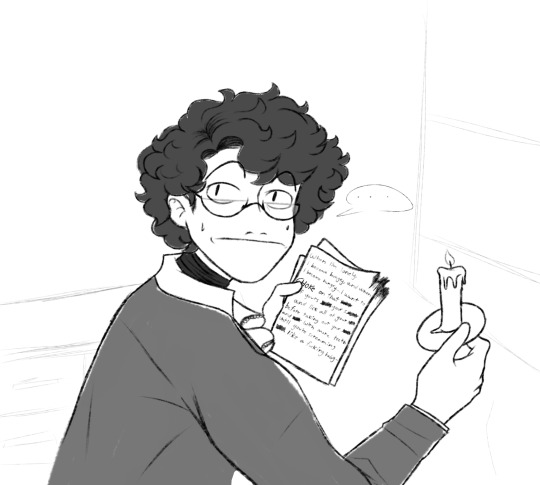
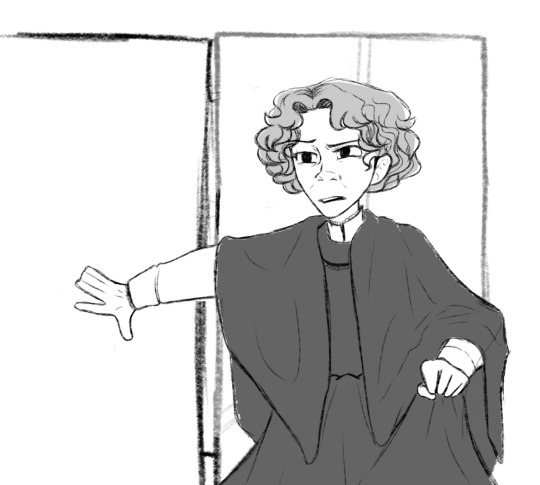

#amrev#american history#elizabeth hamilton#elizabeth schuyler#john church hamilton#hamilchildren#hamilton family#hamilton children#hamilkids#hamilton kids#my art#art
173 notes
·
View notes
Text
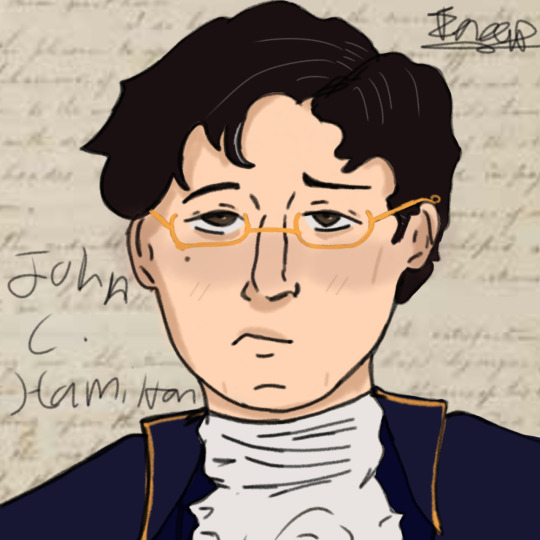
Hi
9 notes
·
View notes
Text
John Church Hamilton to unknown, New York, [January 12, 1824]
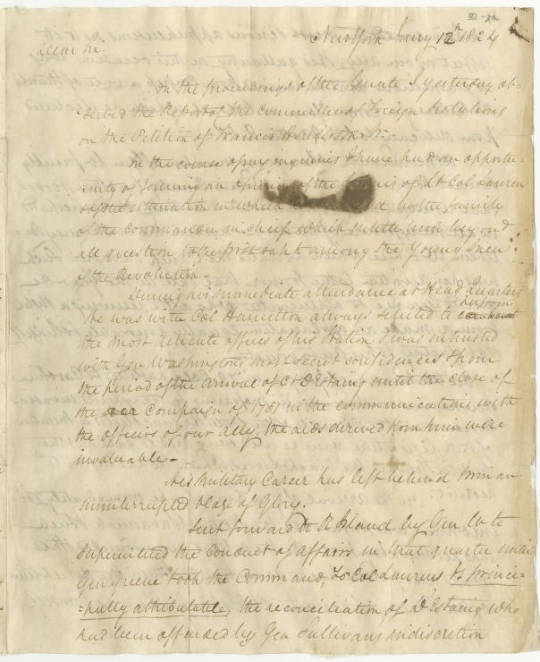
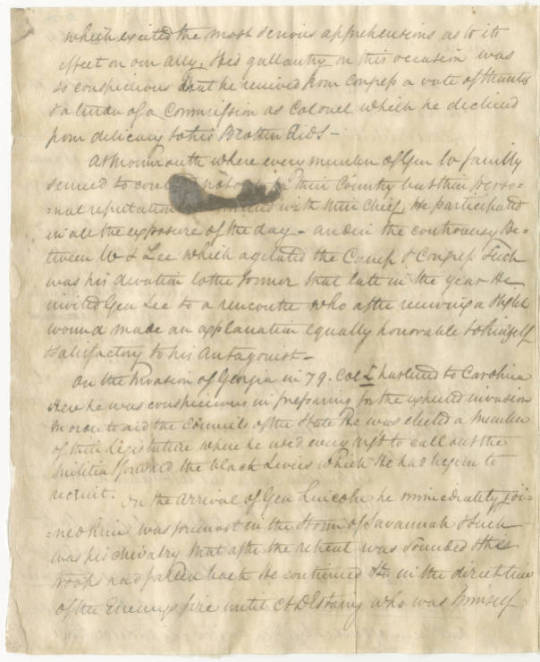
Dear Sir:
In the proceedings of the Senate, I yesterday ob served the Report of the Committee of Foreign Relations on the Petition of Francis Henderson Jr. In the course of my inquiries I have had an opportunity of forming an opinion of the services of Lieut. Col. Laurens and of the estimation in which he was held by the family of the Commander in chief, which entitles him, beyond all question to the first rank among the young men of the revolution. During his immediate attendance at headquarters he was, with Col. Hamilton always selected to perform the most delicate offices of his station, and was entrusted with Gen. Washington's most secret confidences, and, from the period of the arrival of C D'Estaing, until the close of the campaign of 1781, in the communications with the officers of our ally, the aids derived from him were invaluable.
His military career has left behind him an uninterrupted blaze of glory. Sent forward to R Island, by Gen W. to superintend the conduct of affairs in that quarter until Gen. Greene took the command; to Col. Laurens is principally attributed the reconciliation of D'Estaing, who had been offended by Gen. Sullivan's indiscretion, which excited the most serious apprehensions as to its effect on our ally. His gallantry on this occasion was so conspicuous that he received from Congress a vote of thanks and a tender of a commission of Colonel, which he declined from delicacy to his brother aids. At Monmouth where every member of Gen. W's family seemed to contend, not only for their country but for their personal reputation, as connected with their chief, he participated in all the exposure of the day and, in the controversy between W. & Lee which agitated the camp and Congress, such was his devotion to the former that, late in the year, he invited Gen. Lee to a rencontre, who, after receiving a slight wound, made an explanation equally honorable to himself and satisfactory to his antagonist.
On the invasion of Georgia in '79, Co' L. hastened to Carolina. Here he was conspicuous in preparing for the expected invasion. In order to aid the councils of the State, he was elected a member of their Legisla ture where he used every arg to call out the militia and forward the black levies which he had begun to recruit. On the arrival of Gen. Lincoln, he immedi ately joined him; was present in the storm of Savannah, and such was his chivalry, that, after the retreat was sounded, and the troops had fallen back, he continued on, in the direction of the enemy's fire until C D'Es taing, who was himself wounded, pointed him out to Lincoln, who ordered him to draw off a detachment in order to remove him from the field.
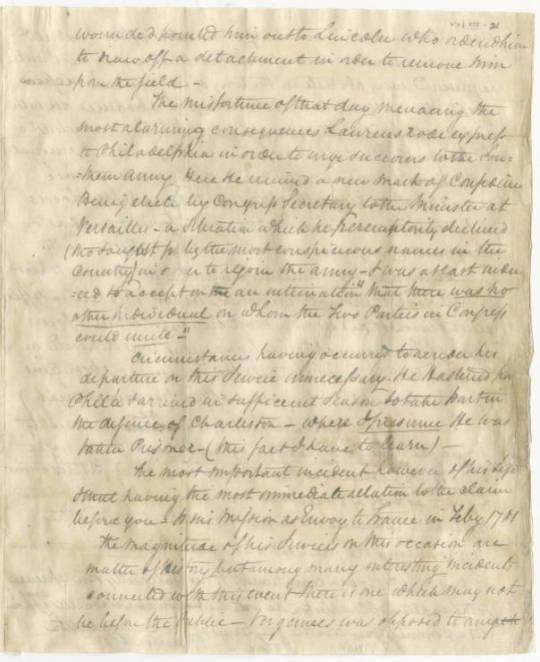

The misfortune of that day menacing the most alarming consequences, Laurens rode express to Philadelphia, in order to urge succours to the Southern Army. Here he received a new mark of confidence; being elected by Congress Secretary to the Minister at Versailles- a situation which he peremptorily declined (though sought for by the most conspicuous names in the country)_ in order to rejoin the army, and was at last induced to accept, on an intimation “that there was no other individual on whom the two parties in congress could unite.” Circumstances having occurred to render his departure on this service unnecessary, he hastened from Philadelphia and arrived in sufficient season to take part in the defence of Charleston, where I presume, he was taken prisoner_ (this fact I have to learn).
The most important incident, however, of his life and that having the most immediate relation to the claim before you, is his mission as Envoy to France in Feby. 1781. The magnitude of his services on this occasion are matters of history, but among many inte resting incidents connected with this event there is one which may not be before the public. Vergennes was opposed to any open interference on our behalf at the outset of the quarrel, and always continued adverse to our independence. In this spirit he presented every obstacle in the way of Col. Laurens negotiation,_ Wearied by these delays L. obtained an interview with him, and after a warm expostulation, characteristic of his noble spirit, he broke from him_ prepared a memorial to the king, and, waiting upon him in the succeeding levée, regardless of the etiquette of the court, handed it to Louis in person. This decisive bearing although it excited great astonishment, was followed by the happiest effects. On the succeeding day the ministers contended with each other in their zeal to promote his views, and he returned here in sufficient season to aid us in a most critical posture of our affairs. (The money obtained by Laurens was deposited in the Bank of N. A. and sustained the financial operations of Mr. Morris until the signature of the provisional treaty). Laurens arrived in Boston, in Sept. 1781, and he immediately joined the army and in the storm of the Redout on the night of the 14th Oct, which was the closing scene of my father's service, L. who, with a body of picked men, was detached by him to take the enemy in reverse and intercept their retreat, entered the works among the foremost and made prisoner the commanding officer. As a compliment to his gallantry and in reference to the capture of Charleston, he with the Viscount De Noailles, was appointed a commissioner to settle the terms of the capitulation.
(Signed)
John C. Hamilton.
44 notes
·
View notes
Text
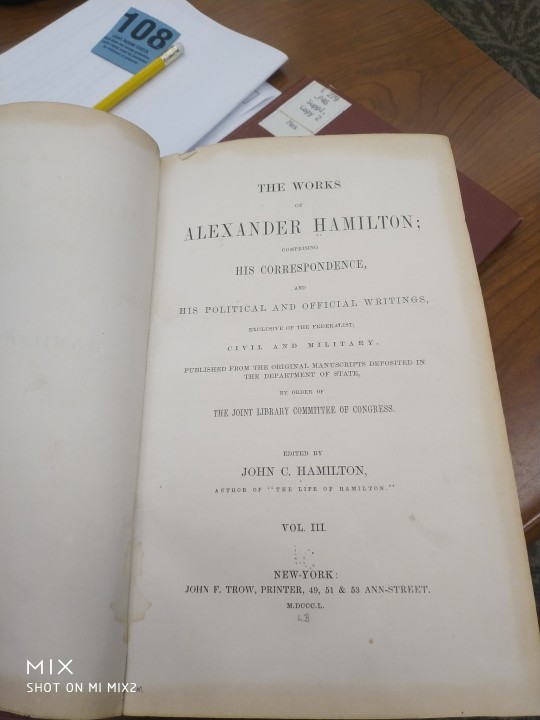
Honestly the Library of Congress is my new dream place. I am obsessed 😍😍😍. The main reading room in the Jefferson building is marvelous, I can't take pictures but you can find it online on Google or on the Library's site. 😍😍.
#amrev#american revolution#turn washington's spies#alexander hamilton#culper ring#george washington#nathan hale#thomas jefferson#abraham woodhull#turn amc#founding fathers#washington#john church hamilton#hamilkids#eliza hamilton#elizabeth schuyler
38 notes
·
View notes
Text
Tw: homophobia, machism, typical behaviors from the time
The first time he read about John Laurens was at the 3:00p.m, after the lunch, doing the cautious responsability of writing his father biography, what volume was he writing in...? He cannot say, Saint heaven, it will be an eternity reading all his father correspondence and another eternity writing and resuming all and another eternity dividing it in volumens and chapters and god... Why did he accept it? Right, due to his mother, Mother asked him to do it, why him? Maybe she saw him the most proper child to read the mountain of his father correspondence, maybe the historians she was paying didn't satisfy her with their work.
Whatever, now is his turn, his (sometimes) terrible work.
John tries to erase such thoughts of his mind, even if it's true that he's currently possesed by procrastination, that's still not a proper excuse for being a negligent son, Father always work for him and his siblings, Father didn't mind the tiredness if the purpose was the good of the nation.
Now, John's purpose was the good of Father, he knows this biography is important for him, he knows himself, as his son, it's carrying his name and legacy. And over all the things, John knows Father wished his legacy more than the life. More than everything.
There was a time after his death John resented him, of course, this ugly sentiments were a sin just knew for himself and the loniless of his room, if he even could had the chance of rant about his father loud and clear he wouldn't take it. There's always a part of his heart, the heart of a gentleman which admires Alexander Hamilton, the good man compromised with his honour, in a way which John Church Hamilton desires to aspire.
But, there's other side of his heart, one that, despite of no matter how much tried to ignore, ended floating in the surface of his ugliest self, the side which resents Alexander Hamilton because that social and political figure, that politian who were critized in the newspapers as an obsesive, that Alexander Hamilton put off his father. At least, he can say he's luckier than other of his siblings, he still can remember the eyes of his father, his tender smile and touch.
Maybe that's why Mother chose him, a kid enough close to his father to remember him.
John has started organizing the desk for his work, it's better if he focus his mind in what really matters, he should stop of drowing himself in pity and misery, poor of his good father who got such a bad son as him, how did he dare? Alexander Hamilton was a good man, admired and respected, with maybe some debilities but such mistakes must not be judged by him, the son who had promised write his life with his own hands.
Now, he had ready the pill and the ink, the paper ready for annotations and a new amount of letters at his side, this was such a curious pack of letters, carefully inside of his Father's trunk, letters that, he can notice, his father preserved the best he can, inside of velvet and tied with a pretty ribbon, naturally John is curious, his first thought is that a devoted man as his father would keep the letters of his wife in those romantic tones.
With all the interest he can handle to read the romantic letters between his parents, he untied the ribbon which flows like water through his fingers, the velvet isn't different, soft and smooth caresses his palms, he check the letters, 1779.
"From Col. Alexander Hamilton to Col. John Laurens"
Uh? That was... Unexpected, specially because John Laurens is a name he hasn't touched in much time, since he was a kid and Laurens was a heroic man turned into a secret story between him and his father. Maybe the perfect patriot made a home in his memories but John Laurens wasn't something he could talk about with other people. But this letter takes those memories back and now, John Church feels like a child again, curious about his father's war stories and the admirable friends he did in the way.
Then, with the chest bubbling in emotion, starts to read.
"Cold in my professions, warm in my friendships, I wish, my Dear Laurens, it might be in my power, by action rather than words, to convince you that I love you."
That was a affectionate greeting, different to his letters to the Marquis or Meade, John cannot say why, but his hands started to turn cold and dead.
"I shall only tell you that 'till you bade us Adieu, I hardly knew the value you had taught my heart to set upon you. Indeed, my friend, it was not well done. You know the opinion I entertain of mankind, and how much it is my desire to preserve myself free from particular attachments, and to keep my happiness independent on the caprice of others. You should not have taken advantage of my sensibility to steal into my affections without my consent. But as you have done it and as we are generally indulgent to those we love, I shall not scruple to pardon the fraud you have committed, on condition that for my sake, if not for your own, you will always continue to merit the partiality, which you have so artfully instilled into me."
John feels as his stomach and soul falling to the ground, he cannot care to stop and lift up those falling pieces of him, he has to continue reading, finding an explanation about why his first tought reading this piece is being a unexpected guest in a love letter.
He's being ridiculous, his father was a good man, a honorable one who died for the defense of that adored honour, he wouldn't had entered in the most deep of sins, his father was good... Even if he was considered a public man and a charming one with women, John knows his attachments were reduced to the weak sex.
He's being ridiculous, his father writes about a wife, asks Laurens for getting him one, as gentlemans do, helping his friends in the sentimental and social life, naturally, two good men wouldn't had been dirted by such an awful action as-
"... that I never spared you of pictures"
Now John is deadly conscieus about his cold hands, similars to a corpse's one, he has to take a breath, feeling how the cold air runs over his mouth, his dry mouth.
For a moment, John thinks he's out of his body, a witness watching a scene where he is possesed by confusion and a feeling of betrayal, his father- No, it's too soon to confirm such wrong suspect, "good man" he repeats in his mind and, possesed with a new spirit, takes the pill, feeling the texture between his fingers, he feels the world stopped to running, the ink isn't falling from his pill, it's just shining, tempting him to a new way of action.
Maybe he shouldn't do this, but his father shoulnd't had loved a man neither, the ink covers the words, desapears them from the history, hide it from the eyes of the humanity, take that words away where nobody can related it with the heros.
And then, still possesed by the fear, betrayal and constipation, he writes, a little annotation to remember even if he thinks he won't have problems forgetting it.
"I must not publish the whole of this"
John needs a breath, now the chair feels like a mortal trap, he's a condenated trying to scape of a non-stop declaration.
And his mind blossoms in betrayal, his father wrote this about the marriage, wrote this perfect features about a wife and then called it "a plague" even before of meeting his mother, he wrote this. He tought this. The family which formed his childhood...
Now, the hate and betrayal about Alexander Hamilton reappears in his mind, that man, that man is removing everything from him, his father, his family, his respect from him.
And... Why does his father had his own letters? John cannot find another explanation than his father doing a copy of it... He dared to do it, he didn't even tought about burning it, letting it in the dark place where the dark affairs belong. How much he kept this letters? How much he spent reading them? How much he spent selecting the beautiful pieces to preserve it and decorate it?
John wants explanations, John wants his father waking up of his grave to explain him why does it looks his favorite tale in his father's favorite sin.
But John cannot have that, because Hamilton searched his death and left him the consequences of it, left him the responsability of carrying with his honour as with his weakness.
So, John continues reading, even if that feels as himself is putting again a knife in his heart, as deep as he can.
"But like a jealous lover, when I thought you slighted my caresses, my affection was alarmed and my vanity piqued."
John wants to laugh. This must be the most twisted joke his father ever created. He doesn't even care anymore about making annotations about Hamilton's political life, he just wants answers.
"I am guilty. Next fall completes my doom. I give up my liberty to Miss Schuyler. She is a good hearted girl who I am sure will never play the termagant; though not a genius she has good sense enough to be agreeable, and though not a beauty, she has fine black eyes--is rather handsome and has every other requisite of the exterior to make a lover happy. And believe me, I am lover in earnest"
Great, nothing better than reading the disaster of mind of his father and the demolition to his family at the same time.
"In spite of Schuylers black eyes, I have still a part for the public and another for you; so your impatience to have me married is misplaced; a strange cure by the way, as if after matrimony I was to be less devoted than I am now."
John's hearts is bleeding in all the floor, in all the letter, all his childhood was killed by a paper and know, Alexander Hamilton is the butcher of all his respects, dreams and childish plays; such a pity, he won't publish this letter covered with his pain then, hide it away, protect at least the matrimony which formed his first years.
How did he dare? Telling stories at his bedtime, without feeling ashamed that the protagonist was his most personal sin.
Who was John Laurens then? The hero who filled the mind of John with new values, with new hopes, what does happen with that? With his admiration and respect. All of that lost on a sodomite.
John doesn't have time to cry and ask why, he wants answers and the answers are probably inside the letters he got.
"I must not publish the whole of this"
He writes and he's right, what would it be of his father if this sees the light? What belongs to the dark, stays in the dark.
So, he reads, even when all the past nights he refused to work passed his bedtime. He reads all the night. All the letters from his father. Until the room is filled with nothing else than darkness and John doesn't feel different.
But he continues reading and while the hours pass the betrayal and angriness which posessed his heart and mind, starts to dissipate.
He reads the whole night and when the morning arrives he gets off of the room and doesn't touch again the letters.
María hasn't wake up yet, she lays on the bed, calm and ignorant. John is jealous of her, she, full of life and energy with nothing else than him to do, he, who is tied to the gosths and demons of his father. John thought he couldn't sleep after knowing what he discovers, as a assassin after a kill, it's a surprise when he finds himself searching a tear of comfort in his bed, at the side of his wife.
There's things that comfort him better, as his future child is growing in the belly of his Maria Eliza.
— Dear, I think is time to wake up.
John is waked up by his wife, he had been in a better world, one infested with his dreams and better of all, the blank space of his mind sleeping.
— What time is it?
— Almost half of day, I didn't want you to wake up sooner, you deserved a long sleep.
— Thanks dear, but there are things I should do during the day.
— Like studying the correspondence of your father? — John feels his mouth turning sour.
— Yes, you know I am the responsable of writing his biography.
— Which you do devotedly every day but last night you didn't come to bed, you immerse too much in your work.
— If you knew what I know you couldn't have gone bed neither.
— Oh? Try me — Says Maria with a tone full of dare and suspicion.
— I don't think your could understand.
— Try me, if I don't understand then you'll have the right, but if I understand you have an ally, it's all a win for you.
John cannot say why he did accept such childish game, maybe he just need to say it to someone else.
— What would you do if you discover something about your father? —
— Something good?
— Something sinful.
— What kind of sin?
John doesn't desire to break his wife's mind, so he decides to say.
— Something like he wanted someone before marriage.
— There's plenty of gentlemen who desires someone, is this jealousy for your mother?
— No, no but in part maybe it is.
— Anyways, I don't see the problem here, your father as any other man had desires before.
— But what if this desires are bad placed...? To someone whose shouldn't belong...?
— You cannot decide where put your desires, they just set up in your heart.
— Rational men can.
— Unlucky you, the desires do not belong to rational men.
— You look to defend it. Don't you understand? My father wanted someone he shouldn't.
— Did he keep her?
— What?
— Did he keep her? In his life? Your father was a good man, one who did the best for himself. Why would he loved someone who didn't make him good?
— Yes, he kept her. For a long while. But he didn't love her.
— Why do you say that?
— Because he shouldn't!
— If he shouldn't and keep her then I think is the biggest demonstration of love.
—You aren't undertanding... I think he dared to intercurse with her...
— There's plenty of gentleman who do that... That speaks worse of her than him.
— It's sinful!
— Maybe... But does not God forgive all our sins? Why can not you?
— Don't you dare to say that.
— Maybe I'm just understanding it different than you, dear — Maria get off of the room, leaving John alone with his toughts.
He doesn't touch again the letters, that night, he doesn't pass of his bedtime, laying at the Maria's side.
While the warm of his wife invades his heart, he asks to himself how many times John Laurens and Alexander Hamilton layed in the same bed like this, with a war outside of his room. He asks to himself if the peace Laurens bringed to Hamilton was this one, similar to the one his wife brings to him.
But no- They were two sinners in the same hell on Earth.
When John falls asleep, full with contradictory emotions, he dreams with a war.
Second day, John doesn't touch the letters, John doesn't work in his writing.
But John thinks, just for some little moments, how he still can admire the friendship between two of them, he wished the passion wouldn't kill it.
Third day, John cannot say when he will start working again. Today he's impressed by the place his wife has in his heart.
Fourth day, he holds his wife's hand, just in the same way Hamilton wished to hold Laurens.
But that's a ridiculous tought, anyway.
Fifth day, today the anger against his father is almost dessapeared... Maria maybe has a point, if God can forgive all the sins, who is he for ashaming his father?
Sixth day, today he doesn't think at all about John Laurens of his father.
Seventh day, he has to return, see the letters again, hunter a prey reunited again. In other words, Eliza asked him how the work was.
Eight day, he returns to the desk, prepares his ink and pill as a butcher prepares his knife, his heart has already multiple wounds, one more won't hurt.
He read his father's letters, now it's the turn of John Laurens, nothing best than killing his hero.
So he reads, the letters of today are much softer to read, maybe it's because his tired mind, too broken to worry about.
He doesn't take annotations, he just read, the affectionate sentences blossom inside his hands, the letters filled with sweet promises and sentences, just a perfect friendship but there´s more.
When John ended to read, there was entering the night, he is a simply man, he goes to the bedroom and catches Eliza laying in bed, beutifully covered with the thin cloths and the scene brings a flame inside John's heart.
His flame isn't new and he isn't innocent. But the discovery arrives that this same flame inside him, can be easily found in the letters between Laurens and his father.
He wishes to run away, find answers, a signal inside those papers, but Eliza smiles and he's weak.
That night he doesn't dream about anything.
But at least, this time, he doesn't stop of working, he continues devotedly with the correspondance, Colonels, Washington, the aides pass through his fingers, but despite the friendship, respect and love, nothing is similar to what he had with Laurens, John realizes, Laurens was his dearest, the first individual who hold his affections. This declaration doesn't surprise him, even if it hurts.
He keeps reading anyway, their correspondence forgotten in some corner of the room but present in his mind.
It passes two months, filled with his wife and children and every day, the pain is a little less, he doesn't know what to think about his parents, so he prefer do not think at all about it.
And some good day, when the pain isn't reaching him and he considers himself a partial reader, he takes the letters again, watching the dates, he reads those in order. And soonly he's just a viewer of the thing growing between Laurens and Hamilton.
He travels through the devotion, longing, sadness and happiness, but now, there's something else. Something he denied the first times.
There's love, strong and hard to hide, it flourish for the whole room, it melts the snow and impresses the starts and John.
John cries a little bit that night, at the start he thinks is because of him, of his family, but he'd already cried enough for it, now he's crying for the deepest empathy, for the pity of his fathers and his lost lover, cries for the world where their two hearts find the other.
He asks to himself what would if John has survived, what would if of his family and father, he wasks to himself if Father would be happier but those are useless thoughts and he's tired to think about it.
When he finds the comfort of his wife and his bed, he puts a hand over her stomach, her stomach keeping carefully a new live, he has a last question that night, he asks to himself if ever Laurens and Hamilton imagined a similar life to them, a domestic house with children running through the furniture.
He isn't asleep yet when the answer comes.
Yes.
Slowly he realizes the similitures between his love for his wife and the love between them, maybe they got better romantic features, a simililary of minds, a friendship between them, a true one.
When he walks close to Maria Eliza, walking around the street, he thoughts about the dates of them, their romantic escapades and the happiness it bringed, that's a bittersweet thought because his mother isn't easy to forget, but it's a nice one.
When he sees couples dancing, enjoying each other company in public he impresses, because John and Alexander got that all in middle of a war, a island of peace, but in the shadows, now he cannot say if that kind of love belongs to the shadows, wasn't he who discover it? Who bringed the light to them again?
He cannot publish all the letters anyway, those are too compromising for a world which won't understand them, the complexity of their souls, the complexity of their longing and the comsuption of their love. There´s other letters that are too compromising for his mother, for the view the husband she loves so much is giving to her.
Hiding wouldn't be the perfect word for decribing it, maybe "preserving it privately", he cannot show all of them, but he cannot erase all of them, he's a serious historian.
Does packets of letters, keep them inside of velvet and silk, keep it inside a drawer your wife of kids won't search.
And where your kids are ready, show them the secret teasure, keep the story alive, maybe in the dark but a dark lighted with candles,
For now, his son carries with that treasure in his name "Laurens Hamilton"
John has a last question, if Laurens and Hamilton would had ever imagined his names together in that way.
#lams#historical lams#historical john laurens#historical alexander hamilton#john church hamilton#BEING PROTEGONIST AGAIN#Maria Eliza van den Heuvel#2nd part of the last one-shot but that isnt necessary for the story#enjoy y'all
59 notes
·
View notes
Text
Alexander Hamilton: You know I killed a man once.
John Church Hamilton: What?
Alexander Hamilton: This cheese is so expensive!!! Who can even afford this?!?!
35 notes
·
View notes
Text
My Children and Their Birth Dates
Phillip - 22 January, 1782
Angelica - 25 September, 1784
Alexander Jr. - 16 May, 1786
James Alexander - 14 April, 1788
John Church - 22 August, 1792
William Stephen - 4 August, 1797
Eliza - 20 November, 1799
Phillip "Little Phil" - 1 June, 1802
We also raised Frances "Fanny" Antill, an orphan who lived with us for ten years starting in 1787 (she was two years old). Alexander and I had 9 children, including the ten years Fanny was with us.
#eliza hamilton#alexander hamilton#18th century#history#family#children#birthdays#phillip hamilton#angelica hamilton#alexander hamilton jr.#james alexander hamilton#john church hamilton#william stephen hamilton#eliza hamilton holly#little phil hamilton#fanny antill
9 notes
·
View notes
Text
all of the hamilton children for @thereallvrb0y
this post is my personal FUCK YOU to alexander hamilton for having so many kids. fucking whore. not eliza though, she's a miracle.
also apparently these historical figures are too obscure for my regular secondary sources, so i had to use peoplepill.com for like all of these, besides like. two. also @yr-obedt-cicero 's posts have helped so much i cannot thank you enough bestie
okay here we go
Philip Sr.
Philip Hamilton (the First) was born January 22, 1782 in Albany, New York. He was sent to Trenton Boarding School at nine, and later joined Colombia College. He went on to study law. Robert Troup described Philip as "a sad rake and I have serious doubts whether he would ever be an honour to his family or his country," which is tough talk for a guy who was gay for his dad. Other than this, people described him as having a lot of potential.
Apparently, he was one of Hamilton's favorites, if not the favorite. As the eldest, he was responsible for carrying on the family name, and was therefore the most "valuable". Hamilton was heavily strict on him, possibly because Philip had rebellious tendencies, but he was nevertheless a good student. I also wanted to include these two letters, this one from Alexander to Philip and this one from their dad to both Philip and Alexander Jr.
In 1797, Philip became deathly ill, but was cured by David Hosack.
After the whole political clusterfuck that was the year 1800, George Eacker decided that Alexander Hamilton was a piece of shit, and he was right, but Philip got pissed and called him a bitch, basically. Eacker insulted Philip and his friend in return and Philip challenged him to a duel because men never learn. Philip was fatally wounded in the duel, an Lin-Manuel Miranda decided to take this personally.
Alexander was so distraught by Philip's death that he had to be held up by two men at his funeral. He became much more religious after his death, and it's really the only part of his life that I think he genuinely believed in god.
Philip was buried in Trinity Church Cemetery with his parents.
Angelica <3
@yr-obedt-cicero made an amazing post on Angelica, which goes much more in detail than I will, as to not be redundant. thank you again <333
Angelica was born on September 25, 1784 in New York City. She was described as sensitive, lively, and fond of music and dance.
She studied French and practiced the harpsichord, which she was gifted by her aunt, Angelica Church. Her and her father would sing together as she played the harpsichord. They were very close and ow.
After her older brother's death, she entered a very poor mental state, described as "eternal childhood" and she couldn't recognize family members (this symptom could have just been after Hamilton's death, but sources vary), also speaking of Philip as if he was still alive. Her family dedicated a lot of time to her health, but her condition worsened, and she spent the rest of her life under the care of Dr. MacDonald.
She died on February 6, 1857 at the age of 72. She was buried at Sleepy Hollow Cemetery in Tarrytown, New York.
Alexander Jr.
Alexander Jr. (who I am going to call AJ bc it's easier and I think it's cute) was born on May 16, 1786. He attended a boarding school in Trenton at 8, then joined Philip studying with William Frazer.
Like his brother, he later attended Columbia College, and graduated in 1804, several weeks after his father's fatal duel. Sources also vary on this, with the St. Andrew's Society of New York (which AJ belonged to) he "did not graduate on account of an accident" so idk. Either way, he started to study law not long after.
He was invited to be an apprentice attorney in Stephen Higginson's Boston law firm, then was admitted to practice law.
He sailed to Spain in 1811 or 1812. He joined the Duke of Wellington's forces fighting Napoleon in Portugal. He returned to America to serve in the War of 1812. He was commissioned as Captain of the 41st Regiment of Infantry in the United States Army in August 1813, though doesn't appear to have seen active service. He went on to serve as an aide-de-camp to General Morgan Lewis in 1812 until June 15, 1815.
He resumed his law practice after his military career ended, and married Eliza P. Knox in 1817. He took office in July 1818 as a member of the 42nd New York State legislature for a one-year term.
In May 1822, James Monroe appointed AJ as United States Attorney for East Florida. As someone who lives in the East Florida parishes, I'm shitting my pants, we never get mentioned in history besides that one time. In 1823, he was appointed to be one of the three Land Commissioners for East Florida, and received the military rank of Colonel.
AJ ran unsuccessfully against Richard K. Call to be the Florida Territory's delegate in the House of Representatives. He returned to New York where he became successful in real estate, and was one of the leading names in Wall Street.
In the mid-1830s, Alexander Hamilton Jr. represented Eliza Jumel against Aaron Burr during their divorce proceedings, which were finalized in 1836 on the day of Burr's death. *copy and paste joke here*
In 1833, AJ used funds from his mother's sale of The Grange to buy the townhouse on St. Mark's Place, where he lived between 1833 and 1842 with his wife, mother, sister and brother-in-law.
He um. Met Abraham Lincoln???? in 1835 when he was on a trip to the west. Lincoln was an Illinois legislator and was apparently just in a grocery story "lying upon the counter in midday telling stories." ... GET HIM OFF THE COUNTER???? GET HIM OUT THE GROCERY STORE???????
Anyway... After the death of his wife, AJ moved to New Brunswick, New Jersey then to New York City. He died on August 2, 1875 at 83 Clinton Place, in Greenwich Village.
James Alexander (my detested)
Bitchbaby was born on April 14, 1788 and graduated from Colombia in 1805. He studied law with Nathaniel Pendleton (and the doctor that he knew).
Shithead was admitted to the bar in 1809 and practiced in Saratoga and Hudson. He married Mary Morris on October 17, 1810. And yes that is Morris as in Gouverneur Morris. They had five children, three of whom died before their father.
Apparently, he lived in extreme poverty in the early years of his legal practice.
"I now look back upon this event as not only the happiness, but the most fortunate occurrence of my long and eventful life. My poverty, with its burdens and responsibilities, nerved me to exertion, and necessity taught me the value of economy and self-denial." -James Alexander in his Reminisces.
He served in the War of 1812 as a brigade-major and inspector of the New York Militia, and relocated to New York City by June 1815.
He built a home in 1828 called Nevis because he's unoriginal. He also kept a portrait of George Washington by Gilbert Stuart, which was originally painted for his father in 1798, in his home.
"The Hamilton mansion was famous in New-York society 40 years ago, and has been the scene of many a distinguished gathering" -New York Times obituary, 1878
Okay, now its time for his love affair (/nsrs) with Andrew Jackson.
Fuckhead joined Jackson's ~entourage~ in Nashville and traveled to New Orleans in December 1827. He served on Jackson's "Appointing Council" after the 1828 election. He agreed to serve as Acting Secretary of State until Martin Van Buren assumed the post (March 4-April 4, 1829). He helped Jackson draft his Inaugural Address.
Slimeball was nominated by Jackson on April 23, 1829 as District Attorney for the Southern District of New York. Jackson told Shitpants he had wanted him "to always be at my command" and when Smartfeller returned to Washington, "I want you to be near me." This was, in historical terms, sussy.
He served as a confidante to Jackson while serving in this position, working on national and international matters, which wasn't in the job description. His 1869 (ha) memoirs is mostly his correspondence, including the discussions of the National Bank (._.) and the Nullification Crisis of 1832 (basically South Carolina disagreed with the government again and did too much).
As Pisspants was leaving for New York, Jackson told him to "Make as much money as you can" and he did by continuing his private practice AND serving as District Attorney, in true Hamilton fashion. He and his younger brother Philip were both involved in the trial of Charles Gibbs. Hamilton left in 1834 to return to his private practice, and now we don't need to talk about Shitty Diaper Andrew Jackson anymore.
He uh. Won the first America's Cup (previously the Royal Yacht Squadron Cup) in 1851. So that's. fun. Queen Victoria also congratulated him on winning so. I guess the Hamilton's just know everyone.
James and AJ served as vestrymen of the Zion Protestant Episcopal Church from 1843 to 1853, and got a little plaque in 1953 and all the years end in 3's. Both were members of the Board of Directors of the Association for the Exhibition of the Industry of All Nations - the Crystal Palace Exhibition in 1853 and that name gives me indigestion.
On March 6, 1862, James chaired and addressed a meeting at Cooper Union in favor of emancipation. And met fucking. Abraham. Lincoln. Lincoln also asked him to draft a proclamation, and when he returned, he had already issued the Emancipation Proclamation. So sux 2 suc.
James published his memoirs in 1868, which end in 1866, including his trips to Europe, the 1848 revolutions and the Civil War. He stated his intent to "do justice" to his father, and published several pamphlets defending him. (The Public Debt and the Public Credit of the United States and Martin Van Buren's Calumnies Repudiated: Hamilton's Conduct as Secretary of the Treasury Vindicated)
James Alexander died on September 24, 1878 at 90, and was buried at Sleepy Hollow Cemetery, Tarrytown, New York. His home was remodeled in 1889 by Stanford White. In 1934, it was donated to Columbia University where it now serves as one of the largest arboretums in the country.
JOHN CHURCH
Johnny C was born on August 22, 1792. He wrote a lot about his dad, and here’s one thing he wrote about the duel which literally stabs my heart out of my chest and rips it apart.
“I recall a single incident about it with full clearness... The day before the duel I was sitting in a room, when, at a slight noise, I turned around and saw my father in the doorway, standing silently there and looking at me with a most sweet and beautiful expression of countenance. It was full of tenderness, and without any of the business pre-occupation he sometimes had. ‘John,’ he said, when I had discovered him. ‘won’t you come and sleep with me to-night?’ His voice was frank as if he had been my brother instead of my father. That night I went to his bed, and in the morning very early he awakened me, and taking my hands in his palms all four hand extended, he said and told me to repeat the Lord’s Prayer. Seventy-five years have since passed over my head, and I have forgotten many things, but not that tender expression when he stood looking at me in the door nor the prayer we made together the morning before the duel. I do not so well recollect seeing him lie upon his deathbed, though I was there.”
In 1809, JC graduated from Colombia University and then studied law. He began serving in the army during the War of 1812, eventually becoming second lieutenant. He served as an aide-de-camp to Major General William Henry Harrison. However, he retired without seeing battle in June 1814.
According to his obituary, “He did not apply himself to the practice of law... having strong literary tastes, [Johnny C.] devoted himself to the study of history, with a view to writing his father’s life.”
Between 1834 and 1840, he went through his father’s letters and papers, and wrote a two-volume biography called The Life of Alexander Hamilton which was published in 1840-1841. Unfortunately, nearly all the copies were destroyed in a fire during the process of binding.
He edited his father’s collected writings under the authority of the Joint Library Committee of the United States Congress and took out the gay porn, publishing The Works of Alexander Hamilton: Containing his Correspondence, and His Political and Official Writings, Exclusive of the Federalist, Civil and Military in 1850-1851. He also wrote a seven volume biography, published between 1857 and 1869 called Life of Alexander Hamilton: A History of the Republic of the United States of America. This combined a biography of Hamilton and a history of the US “as traced in his writings and in those of his contemporaries”. He worked closely with his mother in the preservation of this history, and she encouraged him to write the comprehensive biography.
Also in 1869, he published an edition of The Federalist with historical notes and commentary, and I want it.
JC was a member of the Whig Party, later Republican, but never held office. He lost a run for Congress to represent part of NYC. Also, both Ulysses S. Grant and Chester A. Arthur asked him for his opinions on economics so that’s pretty rad.
In 1880, he presented a statue of Alexander Hamilton to the city “though preferring it were the act of others”. On November 22, 1880, at the unveiling in Central Park near the Metropolitan Museum of Art, he said that after a century of the nation’s existence, time had shown “the utility of [AH’s] public services and the lessons of polity” and that he trusted “that this memorial may aid in their being recalled and usefully appreciated.”
Throughout his life, John Church married Maria Eliza van den Heuvel, and together they had FOURTEEN CHILDREN. so here’s a list of their kids that I didn’t write lol.
General Alexander Hamilton (1815–1907), a major general in the Civil War, author of Dramas and Poems (1887).
Maria Williamson Hamilton (1817-1822), who died young
Charlotte Augusta Hamilton (1819–1896)
John Cornelius Adrian Hamilton (1820–1879)
Schuyler Hamilton (1822–1903), who served in the Mexican War
James Hamilton (1824-1825), who died young
Maria Eliza Hamilton (1825–1887), who married Judge Charles A. Peabody (1814–1901)
Charles Apthorp Hamilton (July 23, 1826 – November 29, 1901), was educated in New York, England, and Germany. After clerking for a New York law firm, he practiced law in Wisconsin. He enlisted in the Wisconsin Volunteer Infantry at the start of the Civil War in 1861, reaching the rank of lieutenant colonel. A severe battle injury to both legs compelled his resignation in March 1863, and he returned to practicing law. In 1881, he was elected judge of the circuit court for Milwaukee.
Robert P. Hamilton (1828–1891)
Adelaide Hamilton (1830–1915)
Elizabeth Hamilton (1831–1884), who first married Henry Wager Halleck in 1855 and after his death, married George Washington Cullum in 1875.
William Gaston Hamilton (1832–1913), a consulting engineer of the Pennsylvania Railroad Company
Laurens Hamilton (1834 – July 6, 1858), an 1854 graduate of Columbia College, who died at the age of 23. He had served for one year as a private in the Seventh Regiment of New York, and drowned accidentally while serving as part of a military escort aboard a ship returning the remains of President James Monroe to Richmond, Virginia.
Alice Hamilton (September 11, 1838 – September 15, 1905)
Shout out to Laurens Hamilton for accidentally drowning, really taking after his grandfather.
John Church died on July 24, 1882 at 89 Stockton Cottage, on Ocean Avenue in Long Branch, New Jersey due to jaundice and catarrh. His funeral was held at Trinity Church.
William Stephen Hamilton
For the sake of my own entertainment, I will be calling this man Stinky bc he probably smells like my dad (shout out to my dad for having the worst genetics). So Stinky was born on August 4, 1797. He entered the United States Military Academy in 1814, then resigned in 1817.
He moved to Illinois, living in Sangamon, Springfield and Peoria, then in 1827, moved to the lead mining region around the Fever River.
He was elected to the Illinois House of Representatives from Sangamon County in 1824. He sponsored a bill that imposed a statewide tax intended to fund road repair and maintenance, proportional to property value, to be paid in labor or money. The bill passed, but was met with opposition, and was repealed in the next legislature.
Stinky served as an aide-de-camp to Governor Edward Coles, and worked for the General Land Office as Deputy Surveyor of Public Lands. He was also an incorporator of the original Illinois and Michigan Canal Company.
In 1827, he served during the Winnebago War in the Illinois Militia as a captain. He commanded the Galena Mounted Volunteers under the command of Henry Dodge.
After the Winnebago War, he moved to the Wisconsin Territory and established Hamilton’s Diggings, later Wiota in 1827. It was later turned into a fort during the Black Hawk War, entitled Fort Hamilton. Juliette Kinzie described the conditions in 1831 as “shabby” and “unpromising.” She also described the foul language used by the miners, the “roughest-looking set of men i ever beheld.” Theodore Rodolf contrasted the settlement’s rough exterior with small, finer details in 1834. He particularly liked the fact that Stinky had the writings of Voltaire at Hamilton’s Diggings.
Elizabeth Hamilton visited her son at Hamilton’s Diggings during the winter of 1837-38. During this time, Stinky also owned the Mineral Point Miner’s Free Press, before he sold it to a group from Galena, and it became the Galena Democrat.
Stinky volunteered in the militia again during the 1832 Black Hawk War. He was often in charge of the militia’s indigenous allies, including many Sioux and Menominee. He was sent to the Michigan Territory to recruit more indigenous allies, leaving successfully with several more parties.
In 1842 and 43, Stinky served as an elected member of the Wisconsin Territorial Assembly, from Iowa County. He lost an 1843 election for Wisconsin Territory delegate to the US Congress. In 1848, he lost another election for the Wisconsin Constitutional Convention. He was generally unable to achieve political fame.
Gold was discovered in California in 1848, and Stinky was there by 49. However, this would prove a disappointment and he later regretted the move. He told a friend he would “rather have been hung in the ‘Lead Mines’ than to have lived in this miserable hole.” This seems to be an accurate description of California.
Stinky never married and presented a rough, garish appearance. Which, good. Fuck beauty standards.
Stinky was ill with dysentery and “mountain fever”, which was likely cholera, for two weeks before he died from “malarial fever resulting in spinal exhaustion terminating in paralysis superinduced by great bodily and mental strain.” He died in Sacramento, California on October 9, 1850 at 53, and was buried in Sacramento Historic City Cemetery, in a section named Hamilton Square. RIP Stinky, the real MVP.
Eliza Holly!
Eliza was born on November 20, 1799. You can tell her apart from her mother because Eliza is her full name, and Elizabeth is her mother’s. She was a sick infant, and Alexander frequently worried about her. He was staying with the children without Elizabeth once, and he wrote, “Eliza pouts and plays, and displays more and more her ample stock of Caprice.” Eliza did not attend Hamilton’s funeral, but saw him with the rest of the kids on his deathbed.
She married Sidney Augustus Holly on July 19, 1825. He was a merchant from a prominent family in business and local government. They lived at The Grange (not James Alexander’s), and remained close with Elizabeth for her entire life, who described Eliza as being like her father.
“You don’t know how important you are to me. You step in the steps of your father’s kindness, and the more you are with me, the more I see that you are like him.” -Elizabeth Hamilton to Eliza Holly
She moved in with Elizabeth in East Village, Manhattan at 4 St. Mark’s Place along with AJ and his wife.
Her husband died on June 26, 1842 and moved in with her mother to 63 Prince Street in Lower Manhattan. This was previously the house of jAmES mONrOe and Samuel L. Gouverneur. She and her mother also moved together to Washington D.C. where they lived near the White House on H street and entertained many guests. Eliza continued to care for her mother until her death in 1854.
Eliza potentially influenced or expedited the creation of John Church’s biography of their father, and chastised him for his overdue writing.
Eliza died in Washington D.C. on October 17, 1859, and was buried in Westchester County, New York, at Sleepy Hollow Cemetery with Angelica and later James Alexander.
Philip Hamilton (the Second) “Little Phil”
Little Phil was born in New York on June 1 or 2 in 1802. According to his son, Phil “manifested much of his father’s sweetness and happy disposition, and was always notably considerate of the feelings of others, and was punctilious to a fault in his obligations.” He was also almost six feet tall. Idk how.
Because of the poverty that afflicted his family after his father’s death, Phil “was denied those advantages accorded to his elder brothers, and had, in every sense, to make his own way.”
Phil practiced law in New York, and served as an assistant United States Attorney during the 1830s under James Alexander. He achieved notable success as a prosecutor in the case of pirate Charles Gibbs.
Phil moved to San Francisco during the Gold Rush in 1851 to practice law as a partner of his brother-in-law Robert Milligan McLane. He returned to New York after one or two years.
He assisted the Underground Railroad in helping enslaved people escape at least once by concealing them in his cellar until they could resume their travel to Canada.
At the end of the Civil War, Hamilton served as Judge Advocate of the naval Retiring Board at the Brooklyn Navy Yard, and “led a quiet life” after 1865. He characterized his career as a “hard, up-hill professional life” working with a “very great” number of the poor and most of his time was “given up to unselfish acts”.
He married Rebecca McLane, who died on April 1, 1893, and they had two sons together, Louis McLane Hamilton (1844-1868) and Allan McLane Hamilton FRSE (1848-1919).
Louis served in the US Army during the Civil War. He enlisted as a private in the 22nd New York Militia in June 1862, then the 3rd US Infantry as second lieutenant in September 1863. He served with the Army of the Potomac, and was brevetted twice fer gallantry, including the Battle of Gettysburg. In July 1866, he became a Captain in the 7th US Cavalry. On November 27, 1868, he was killed in the Battle of Washita River, being posthumously brevetted to the rank of Major.
Allan was a psychiatrist and a Fellow of the Royal Society of Edinburgh. His books included a biography of his grandfather, The Intimate Life of Alexander Hamilton.
Little Phil died “comparatively poor” on July 9, 1884 in Poughkeepsie, New York.
@thereallvrb0y-deactivated42069
And that is all the Hamilton kids. This post put me through the five stages of grief. I’ll include my sources now, and sob my eyes out bc existence is pain. I hope you enjoyed, and if you have any questions, feel free to ask!! i’m doing my best to get content out so I will try not to take multiple months to post again HSKSKFHLS love you all <333 (f in the chat for stinky)
https://peoplepill.com/people/alexander-hamilton-10
https://networthheightsalary.com/angelica-hamilton-bio-facts-about-elizabeth-schuyler-hamilton-s-daughter/
https://archive.org/details/reminiscencesofj00lchami
https://www.mountvernon.org/library/digitalhistory/digital-encyclopedia/article/james-alexander-hamilton-1788-1878/
#alexander hamilton#philip hamilton#philip hamilton sr#angelica hamilton#alexander hamilton jr#james alexander hamilton#john church hamilton#william stephen hamilton#eliza hamilton holly#philip hamilton jr#philip hamilton the second#history#american history#civil war#gold rush#war of 1812#elizabeth schuyler hamilton#abraham lincoln#seriously he was in this two too many times#andrew jackson#shitting myself and not proofreading this HSFLSHKFJ#do it for richie 💪
86 notes
·
View notes
Text
Random memes from my phone as amrev:
Hamilton and Burr core:
Washington aides:
The british army talking about the continentals:
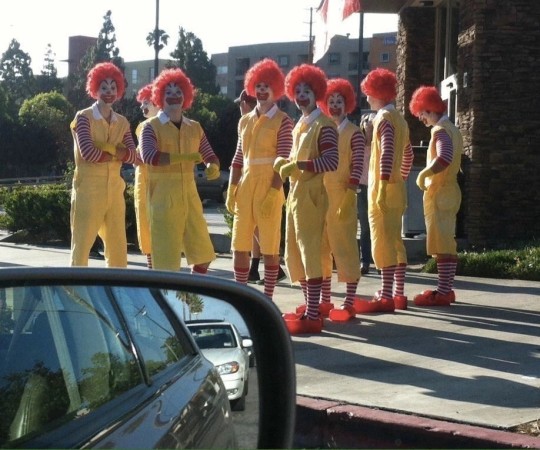

Jefferson @ Burr:

Amrev tumblr talking about Hamilton:

Nathan Hale (srry):


John Church reading the Hamilton and Laurens' letters:

Lafayette whenever Washington entered a room:

Washington daily:

Laurens when he realized he was falling in love with Hamilton:

#memes#shitpost#amrev#washington aides#alexander hamilton#john laurens#marquis de lafayette#george washington#aaron burr#thomas jefferson#nathan hale#john church hamilton
60 notes
·
View notes
Text


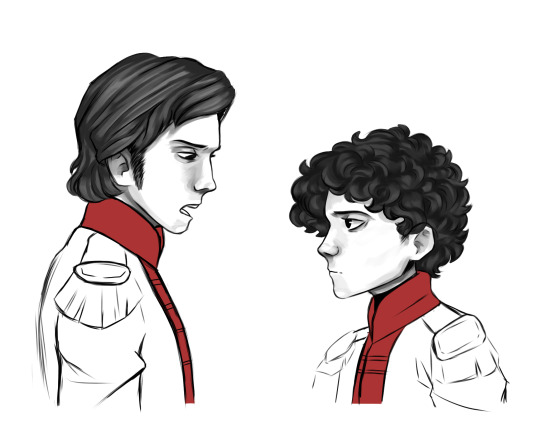
Been in a doodling mood

#amrev#american history#john church hamilton#philip hamilton#james alexander hamilton#angelica hamilton#theodosia burr alston#theodosia burr jr#hamilchildren#hamilton children#hamilkids#hamilton kids#hamilton family#my art#art
120 notes
·
View notes
Text
#look at what cicero and del have done to me 😭😭😭#amrev#john laurens#harry laurens#jemmy laurens#patsy laurens#polly laurens#philip hamilton#angelica hamilton#james alexander hamilton#alexander hamilton jr.#john church hamilton#eliza hamilton holly#william s. hamilton#philip hamilton ii#polls
8 notes
·
View notes
Text
Happy Birthday to my personal favorite of the Ham kids, John Church Hamilton!! 🥳
Born on August 22nd, 1792, John C. Hamilton was the fifth child born to Alexander Hamilton and Elizabeth Schuyler. While serving as an aide-de-camp during the War of 1812, he soon after returned to private life, marrying Maria Eliza Van den Heuvel in 1814. They went on to have fourteen children together.
He spent most of his life as a historian, studying his father’s many writings and letters to then publish a biography of his life.
John died on July 25th, 1882, just short of what would have been his 90th birthday.
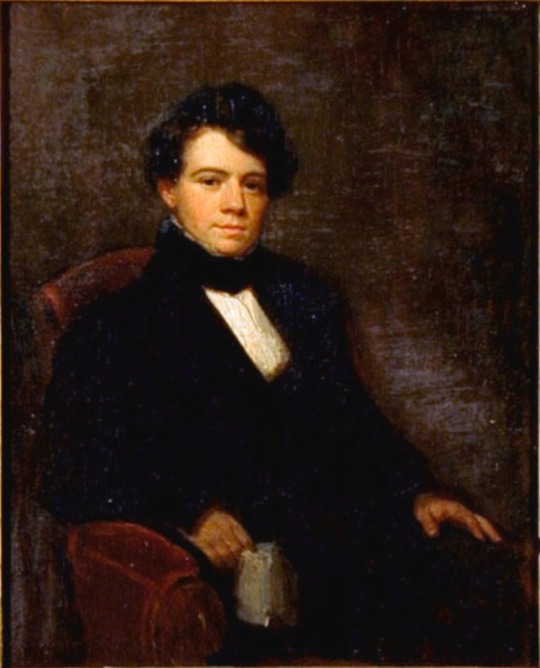
23 notes
·
View notes
Text
The lost writing of Aaron Burr, circa. Early 1830s: (please don’t take this seriously)

“July, 1804: I sat down at the table and watched General Hamilton come in with a cheery mood, he talked with some friends and had a few drinks, he sat on the counter and began singing a song. He had always had such a beautiful voice. At the time I was rageful and spiteful, and I watched him with intensity and for a moment I saw him look back at me with the same intensity as if we were both thinking the same thing. Once it was all over I was still sitting and enjoying a drink by myself and then I heard his voice “Col. Burr.”
“Gen. Hamilton.” I responded in a cold tone not wanting to speak to him “may I join you?” “Go ahead” he sat down in front of me with a drink in hand and we sat there in silence until I finally spoke up “are you seriously going to let this happen? You are that petty to risk your life and not just apologize to me?” “Yes. What I said and all I have said was the truth. I stand by every word of it. You can deny it but it doesn’t make it any less false.” he responded to me. I was flabbergasted and annoyed and I wanted to leave but something kept me there to continue pressing the matter and he spoke again “it’s too late to go back now anyways, whatever happens on that day will happen. I made what I intend to do very clear to everyone who’s spoken to me about it-“ “and what are those intentions?” “I cannot tell you, you will simply find out when we get there.”
“you’re a fool-“ “and you’re a snake who will ruin us all.” I stood up having enough of him “goodnight General.” “I’m not done with you yet” he said bluntly “but seems I’m done with you, sir” I began to walk away but he stood up as well grabbing me by the arm with force and said in my ear in an angry whisper “don’t you dare walk away from me.” His grip becoming tighter.
I looked into his eyes and saw something vile and perverted in them looking back at me. He then led me away into a private room and pushed me against the wall “what are you doing!?” I finally got out “I despise you. you’re immoral, shameless, an insult to good men. Nothing a but lewd disgrace” he said as he wrapped a hand around my throat “screw you-“ “you are mistaken, Col, I will be screwing you.”
I quickly got out of his grip pushing him to the ground; getting on top of the General locking our hands together “I knew you wanted me, bastard…” I hissed out while he was struggling to move which I found hilarious. I leaned down and brought our lips close to each other and whispered “the hatred is mutual” our desires took advantage of us both that night. I began to kiss him roughy and he wrapped his legs around my waist as we were sharing this intimate moment with each other, not caring about anything or anyone else.
once it was all said and done, the sun was rising, we were both lying on the ground with our clothes scattered across the floor and our hearts racing. Hamilton immediately jumped when he heard someone walking by “oh no-“ I stayed because this situation was more than familiar to me but seems he didn’t care to give me any affection afterwards which I found pretty rude “see you on the dueling grounds Col” he got dressed and immediately left the room and I stood up getting dressed as well before someone knocked and opened the door noticing I was still mostly unclothed, by sheer coincidence it was a friend of mine “Aaron, was Mr. Hamilton here while you were changing?” “What? Of course not, don’t be silly-” I cleared my throat and changed the topic after the obvious lie I had just told and got ready for the day.
(🕰 🙏Time skip: it’s Weehawken, dawn. Guns were drawn.)
This is where my memory gets fuzzy, I see Hamilton arrive with his second and he takes first position, he looked at me with determination and like he was a man out for blood and I looked back hoping we could still work this out “present…” we both readied our pistols. “1….2….3…4….5….-“ “STOP” Hamilton cried out. I was confused and for a second I thought he was actually going to call it off- but no- he went through his pockets and took out a pair of glasses putting them on and examining his surroundings “this will do. You may continue” a side note but I didn’t know this at the time but it was the same spot his son perished three years earlier. “6….7….8….9….10! FIRE!” two gunshots rang out, I can’t remember who shot first or if he truly aimed to miss or not. All I remember is seeing through the smoke Hamilton collapsing and the regret immediately washing over me “no- no no no no” I tried to run over but my second was holding me back “sir, we must leave!” “I must speak with him!” I relented eventually and the ride home was a quiet but fearful one.
As soon as I was able too; I wrote his doctor to check his current situation, he was rowed back to the city and is at the home of a friend, with everyone hoping for a recovery- but hindsight has given me the knowledge that the hope was in vain. I decided to visit him in the night knocking on the window of the room he was in. Knock knock. He looked at me and then looked away, but I opened the window and climbed in anyway “I could have you arrested and hung right now…” “I just wanted to see you-“ I stepped closer to his bed. “Well I don’t want to see you….I can’t even feel my legs.” He said in a grim tone of voice “I’m sorry but you left me no choice- I didn’t mean too- or I-“ he bit his lip and finally gave into what I had wanted “I’m sorry.” He muttered out teary eyed “What?” He looked annoyed and tried to hide how frustrated he was to say those words to me “I’m. Sorry.” I was shocked and reached my hand to hold his “it’s a bit too late for that but I accept it nonetheless.” I smiled and he was crying “I don’t have much time…” “you always act like you are running out of it” I chuckled. Please do not judge me for this I was trying to lighten the mood at least a little. I grabbed a handkerchief and wiped his tears “DONT TOUCH ME” he hissed out like an angry kitten “oh, but you allow me to hold your hand?” “…….” He had no response and I was content with the interaction “I loved you, Alex…and you pushed me to this breaking point. You have no idea what you’ve done to me.” “you’re a dangerous man. And I stand by it despite my apology. Now leave before I yell for someone to take you to the authorities” I left back home. Hours later the word would get out that he died. I spent that whole day crying to myself.
I would never speak of the event again to anyone but I write it to you now. And only you will know the full context of those nights me and Hamilton shared. This story will die with me and hopefully you don’t go blabbing about like a gossipy child when you read this.
Your obedient servant, A; Burr.”
“Aaron Burr would die a few years after he told me that story, I have not said a word of it and if anyone were to find this writing it would ruin Alexander Hamilton, my fathers legacy would be tarnished….I cannot for the sake of me publish any of this. I will burn this page and no one shall ever know what has truly occurred. Historians will be left to wonder and I say to you Col. Burr wherever you may be….I hope that you burn” He lit the fireplace and threw the letter inside watching as it crumbled and disintegrated before his very eyes. Once it was it completely gone he let out a sigh of relief and sat at his desk quietly sobbing.
The end.
21 notes
·
View notes
Note
Favorite Hamkid? :]
i can’t believe you’d make me choose
okay i’ll narrow it down. alexander jr is my least favorite, i feel completely neutral about james and phil 2 idk why, and john church is ALRIGHT. angelica has my whole heart, but idk much about her personality, same with holly.
so that leaves phil 1 and will, and man. i love will and i think he’s the most interesting of the hamkids, but philip is philip!! i include him in everything!!!
so ig i have to say philip, but i love them all, even if alex jr was a bitch
#alexander hamilton#alexander hamilton jr#james alexander hamilton#john church hamilton#philip hamilton jr#angelica hamilton#eliza hamilton holly#philip hamilton#william stephen hamilton
9 notes
·
View notes
Text
The first time he heard about John Laurens was when he was 10 years old, although he thought he was old enough to not need or want bedtime stories, his father simply chose one night in August to talk about John Laurens.
John had never heard a similar name, he didn't remember him as a friend of his father or a relative, besides; he had grown up with his father's adventures which were filled with courage and honor and he also couldn't record an aparition of John Laurens.
Yet he found something in the stories about John Laurens that he hadn't found in his father's ones about his days at the war, there was a certain enigma to the character, values so purely solidified, manners so perfected and ideals so lofty that quickly John choose him as a new hero, close enough to admire but somehow as distant.
Naturally, the new stories from his father woke up his curiosity and the deep admiration and emotion that the tales wake up in him is hard to ignore, he tries to search in his father's library with the thought that a patriot so perfect could just belong to the pages of a exciting novel but his results are poor and disapointing, he doesn't find anything else than lawyering books and academic texts, even finding a bunch of his letters during war that he prefers to ignore, grumpy with the insatisfaction of his search. Then, the great idea of searching in his brothers' libraries appears on his mind but in seconds he regrets it, the idea of get in Phillips' one has much pain to deal with.
Then he decides to ask James, with the hope that John Laurens is a tale already told, a nice leyend his father use for making easy their dreams, maybe, just maybe James heard stories he hadn't! But one more time, the results are supremly insatisfactories and James is totally ignorant of someone with such a name.
But- wait a minute, since John Laurens is a tale, John Laurens must be a invention of his father exclusively for him, a tale created just for John Church Hamilton, a gift from his kind father.
Therefore, with the explanation discovered, he abandons the subject with James, not wanting to provoque his jealously admitting his father has been inventing th best adventures for him.
Satisfied and happy, he goes to study Latin and Mathematic, forgetting John Laurens for the rest of the day.
The next time that his dear father tells him again about John Laurens have passed a time terribly long, he has to wait too much, too patiently for the new favorite tale, however he understands the late, the work of creating and redacting is hard and it takes time, specially the great stories like John Laurens.
And naturally, the wait and the expectative is just useful for reising his curiosity, now with new ideas about challenge his father's creativity, see how long he can go with his imagination. The tale of said night isn't dissapointing, John Laurens is as intrepid as the last time and even more, his values are intact and his patriotism raises a little flame in his own chest.
Furthermore, his father's face just apports to the deep halo of admiration and respect, sometimes John is surprised for the look in his father, he has the eyes filled with a kind of tender look, vulnerable in ways he doesn't understand or can explain, the room is invaded with warm and his father is transportaded to a mental kingdom where John cannot join him, a mental land of him and the leyend of John Laurens.
"How is he like?" John interrumps.
A distracted hum, his father too inversed in the fantasy, poor! He always is really concentraded telling this stories.
"How is he like?" He repeats.
Father looks at him with a glaze he haven't seen before, is one that makes him feel he just did something wrong but doesn't understand what could be.
A silence and dear father speaks:
"He was dignified and good, tinged with kindness and goodness, strong but sensible in the important parts" He says but that's something John already knows, he wants something different, something useful to imagine his tales.
"In the physical part, how is he like?"
Father looks at him, John thinks that there's something in his gesture that looks like pain.
"Tall, he was tall"
"How tall?"
"A head over me"
"And what else?"
"He had very masculine and hard features, a good jaw and a noble nose, his eyes... His eyes were big and kind, he always had a really tender look in them" His father continues and for the glaze of his eyes, he returned to his fantasies and the mental kingdom that John cannot reach.
"His hair was blond, a charming tone, similar to honey but he liked to powder it, some mornings I helped him and he helped me to do such... Like the gentlemans and good friends do" Now, there's something that has John's attention. Somethign that breaks his last assumptions.
His father knew John Laurens.
"Did you know him?" He asks excitely, blinded with a new enthusiasm which probably won't let him sleep.
But instantly he regrets, because now, just now he certainly can label the look in his father, because now is filled with pain and a vulnerability that he never thought would see ever.
John keeps silent, specially because he doesn't know what to say.
Luckily, his father takes the word.
"He was my dearest friend".
And, there's something wonderful to know Mr. Laurens doesn't belong to the imaginary fanthasies, something that filles him with admiration and respect, a kind of emotion that he didn't feel with the rest of his father's friends, already happy with the chance of sharing that admiration for Mr. Laurens with his father.
But again, he doesn't say anything of that, the pain that persists in his good father shuts him up, the sorrow filling every of the wrinkles.
"He died before you born" Father continues, doing nothing against the broke glaze in his blue eyes. John, as the good son he wants to be, desires to say something, comfort with words or a hug, but this new side of his father surprises him, too much to do a thing.
"Can we pray?" It's the only thing that comes to his mind, trying to abandon the subject and pleased to see the grief of his father's dissapears incredibly fast.
They take each others hand and pray, John doesn't say it loud, but he prays for the resting of Mr. Laurens.
While he grows up the stories about Mr. Laurens disappears, it's asshaming hear tales when you have 11 years old but John Laurens doesn't dissapear, he arrives as a ghost in the moments John needs inspiration, his mission in France will inspire him to study French, when the speed of the horse is too much the bravery of John Laurens will comfort him, when he thinks the discussion among hiw siblings are unfair John Laurens will remind him to keep his values and believes high and proudly.
Nevertheless, when his good, dear and beloved Papa dies, John Laurens cannot help him, he didn't lose a father, he was brave and kind, but he was the perfect gentleman anyways. Mr. Laurens didn't have to see the destruction of his family, he didn't have to hear his siblings cries or his mother prays.
But his father did.
His father already lost, he lost Phillip, dear and young and fool Phillip and he lost Mr. Laurens, bright and brilliant and affectionate Laurens. He remembers the face of his father when Phillip died, he rememebers the change in him, the weight, the eyes, the mouth, now he can recognize the look his father had in himself.
He remembers the vulnerability when talked about Mr. Laurens, the sweetness talking about their friendship and the plummet when remembering said friendship couldn't exist anymore.
And slowly, he creates his own mental kindgom, one that only he and the ghost of his father can join in, a place where just him and the memories of his father exists.
Now he understands why his father lost himself while talking about Laurens so easily and why arriving back to the reality hurted him so much.
But John has another thought which comforts him, now Mr. Laurens and Mr. Hamilton will meet again, and some far day, John will meet his father again, while now he has his mental kindgom and some days, that's enough.
#fic#historical lams#john laurens#historical john laurens#historical alexander hamilton#and the protagonist:#John Church Hamilton#american revolution#amrev#hamilkid#hamildad
55 notes
·
View notes